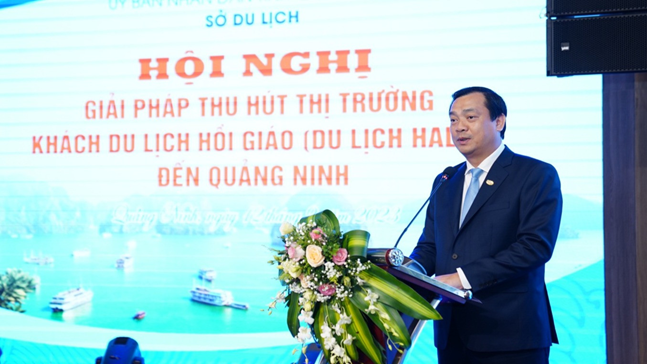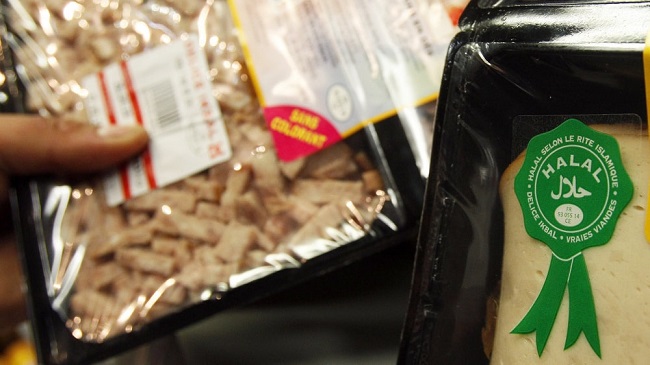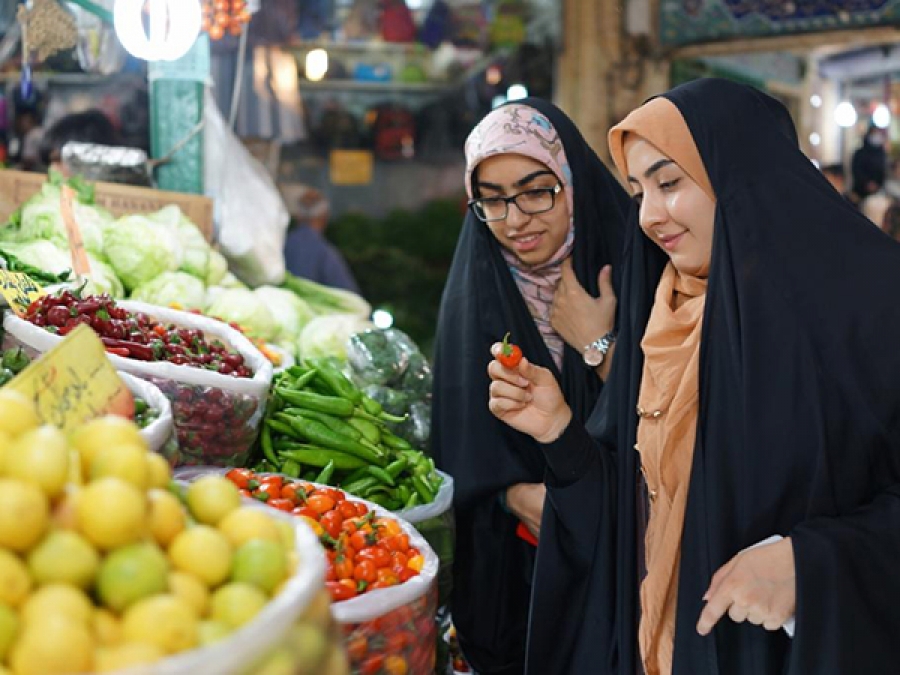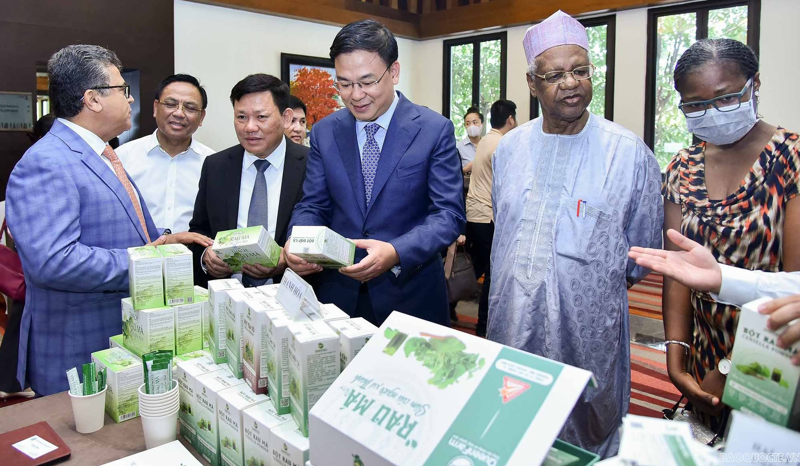The Halal product market is vast, not only in the Middle East but also in South Asia, West Asia, Africa, and some Southeast Asian countries. However, Vietnamese businesses have yet to fully seize the opportunities and effectively tap into the potential of this Halal market.
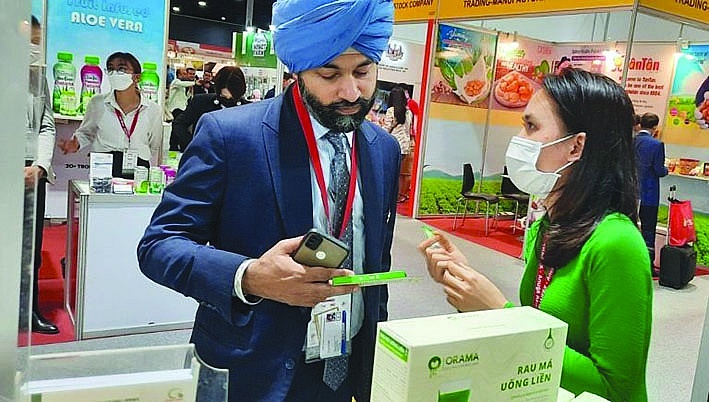
The international seminar titled “Developing the Halal Ecosystem: Sharing Experiences from Global Nations and Vietnam” took place on July 5, 2024, attracting significant attention from the market. Alongside the seminar was the launch of the Institute for South Asian, West Asian, and African Studies.
According to the organizers, in addition to supporting the implementation of the government’s project, the seminar served as a platform for discussing opportunities for Vietnamese businesses to explore export possibilities, attract Muslim investors and tourists, and thereby promote cooperative relations between Vietnam and the 57 member countries of the Organization of Islamic Cooperation as well as other countries worldwide. It also evaluated the potential for sustainable and effective access to the global Halal market.
The Institute for South Asian, West Asian, and African Studies (ISAWAAS) stated that in Arabic, “Halal” means “permissible” or “lawful” according to the regulations of the Qur’an and Islamic Sharia law.
Halal is not simply limited to products that are free from alcohol, pork, or pork-derived ingredients, and those slaughtered according to Islamic rituals. The scope of Halal is broader, emphasizing the purity of the product and its proximity to its natural state.
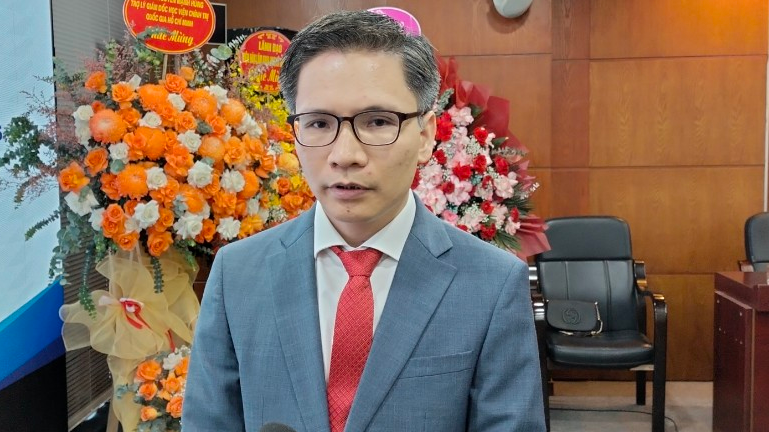
“Halal is a vast market with many potential opportunities for Vietnamese businesses to explore, penetrate, and expand, especially in the context of the need to diversify markets”
However, to enter this market, Vietnamese products, ranging from food and beverages to fashion and clothing, must be produced following processes that meet the criteria and standards of Halal, and they must be certified as meeting Halal standards.”
This applies to products that are free from harmful substances, pesticides, fertilizers, harmful preservatives, waste, antibiotics, prohibited goods, and genetically modified products.
Halal also refers to purity in behavior and conscience, requiring good moral values and ethical choices in daily life.
Moreover, Halal is closely related to issues of organic agriculture, fair trade, product safety, ethical business practices, humane treatment of animals, and ecological economics.
A representative from ISAWAAS emphasized that Halal is clearly connected to sustainability, humane livestock farming, environmental respect, safety, hygiene, and corporate social responsibility values. Halal compliance is a “farm-to-table” process covering all stages of the supply chain, including input supply, farming, slaughtering, processing, warehousing, transportation, logistics, distribution, and consumption.
Regarding the market potential, Dr. Nguyễn Xuân Trung, Director of the Institute for South Asian, West Asian, and African Studies, stated: “Halal is a large market with many potential opportunities for Vietnamese businesses to tap into, penetrate, and further expand, especially considering the need to diversify markets.”
Assessing the specific potential of Halal, Mr. Trung noted that the scale of the Halal product market is vast, not just in the Middle East but also in South Asia, West Asia, Africa, and some Southeast Asian countries, all of which have their standards for Halal.
However, to penetrate this market, Vietnamese products, whether food, beverages, or clothing, must be produced according to processes that meet Halal criteria and standards and must be certified to meet Halal standards.
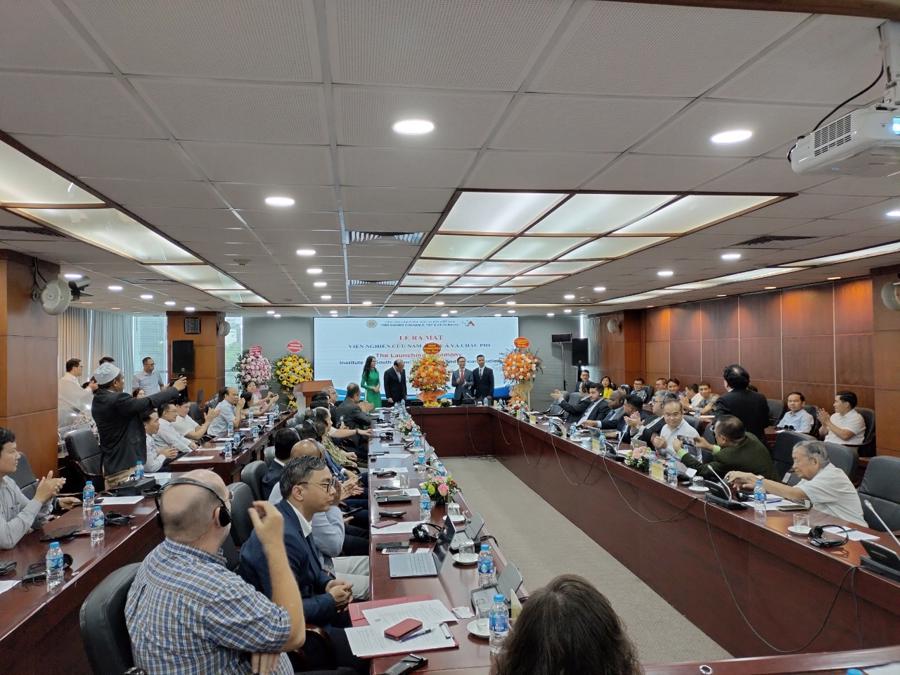
Currently, Vietnamese businesses have not fully leveraged the opportunities or effectively tapped into the potential of the Halal market. This market remains relatively new to Vietnamese businesses, and not many individuals or companies are familiar with Halal.
In tourism, which is seen as a very promising sector, to attract Muslim tourists from the Middle East, services in Vietnam must meet the criteria of these people and their countries.
The potential of the Halal market is vast, with an expected population of 2.18 billion by 2030, accounting for around 30% of the global population. The market size is forecasted to reach a maximum of 3.2 trillion USD by 2025, with an annual growth rate of about 6.2%.
Dr. Trung mentioned that the government has launched a project to “Enhance International Cooperation to Build and Develop the Halal Industry in Vietnam by 2030.”
With a region spanning over 80 countries, Dr. Phan Chi Hieu, President of the Vietnam Academy of Social Sciences, confirmed that there is ample room for research activities, including cultural, historical, educational, political, and economic aspects of countries in the region.
The Institute for South Asian, West Asian, and African Studies (ISAWAAS) was formed by merging the Institute for African and Middle Eastern Studies and the Institute for Indian and Southwest Asian Studies.
The institute is tasked with researching fundamental issues related to economic development, politics-security, culture-society, and science-education. It also provides consultation to the Party and State in policy-making for South Asia, West Asia, and Africa—a vast region with over 80 countries. Through this, it aims to enhance the efficiency of cooperation and the influence of Vietnam in these regions and worldwide.
Currently, the institute is the largest area studies research unit under the Vietnam Academy of Social Sciences in terms of scope, research subjects, and human resources.
ISAWAAS will conduct research and offer policy advice to central and local agencies; carry out in-depth studies on developing potential sectors such as tourism, economic industries, and export markets for Halal products. Moreover, it plans to collaborate with local areas like Hue to develop Halal tourism and extend this development to many other provinces in the future to promote the growth of Halal.
Besides basic research activities, the institute needs to focus on new and prominent issues and unique development models to identify, evaluate, and forecast trends in the region. This research will provide timely advice and scientific arguments for the Party and State to formulate policies aimed at enhancing relationships between Vietnam and countries in South Asia, West Asia, and Africa.



